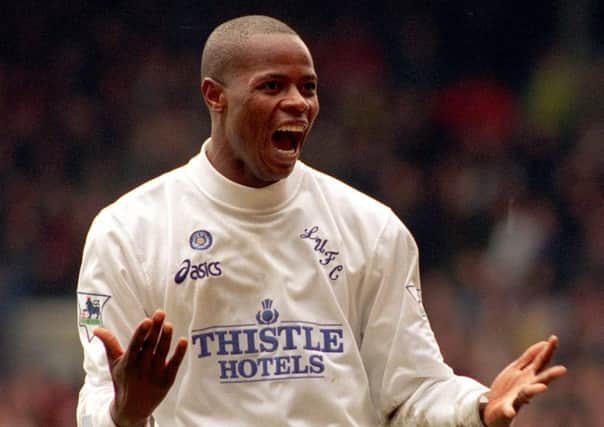Phil Masinga, footballer


Masinga, who has died at 49, came to England in a £275,000 transfer from Mamelodi Sundowns in the same recruitment which brought Lucas Radebe from Kaizer Chiefs.
“We weren’t used to the weather and we struggled a little bit. We kept each other warm at times,” Radebe recalled.
Advertisement
Hide AdAdvertisement
Hide AdRadebe went on to become captain at Leeds, an ambassador who was recognised as one of the Premier League’s leading centre-backs, but Masinga’s two years at Elland Road also earned him some affection.
A giant of a centre-forward at 6ft4in, he was a more sought-after player than Radebe when Howard Wilkinson signed him, fresh from scoring 17 goals in the Sundowns’ run to the South African title.
Other European clubs had taken an interest but the deal with Leeds was done before the start of the 1994-95 season. The story went that the acquisition of Radebe was in part about keep Masinga happy and firing so far away from home.
The early portents were good. Masinga scored five times in two pre-season games and showed signs of settling quickly, but his best, tantalising moments for the club promised more than he was able to deliver.
Advertisement
Hide AdAdvertisement
Hide AdIn December 1994, Masinga’s goal ended Leeds’ 19-year wait for a victory over Arsenal at Highbury. The following month, he scored a nine-minute hat-trick in an FA Cup win over Walsall, coming off the bench to win the tie in extra-time.
Within a matter of days, Wilkinson spent £3.4m to bring Tony Yeboah in from Eintracht Frankfurt, increasing competition up front dramatically. Masinga put the transfer in the shade by scoring twice in a 4-0 win over Queens Park Rangers, a match in which Yeboah debuted as a substitute, but his grip on a place began to slip.
Nine goals in his first season were followed by only two in his second, although one finish helped Leeds into the final of the League Cup in 1996. But having failed to meet UK work permit requirements, Masinga was sold to St Gallen in Switzerland later that summer. A spell at Bari followed before his retirement through injury at the age of 32.
Back home in South Africa, made history with the brilliant, long-range strike which sent the Bafana Bafana to the World Cup for the first time in 1998. Despite that goal, and a tally of 18 finishes in 58 international matches, he was a target for abuse from a section of South African fans and the criticism weighed heavily on him.
Advertisement
Hide AdAdvertisement
Hide Ad“It was tough, it was killing me,” he was quoted as saying. “I couldn’t even buy newspapers anymore because I didn’t want to see what they would be writing about me.” The passing years, however, cast him as a loyal servant to the country’s national side.
The South African Football Association president, Dr Danny Jordaan, described him as a “giant” and a “hero”.
He had been fighting cancer and was admitted to hospital before Christmas.